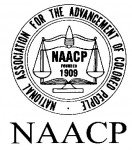NAACP Files Suit Against Myrtle Beach for Racially Discriminatory Practices During Black Bike Week
City and Police Accused of Separate and Unequal Treatment of Black Bikers versus White Bikers
Style Magazine Newswire | 2/27/2018, 11:06 a.m.
February 27, 2018 – The National NAACP, the Myrtle Beach Branch of the NAACP and three individuals filed a complaint and motion for preliminary injunction in U.S. District Court for the District of South Carolina alleging that the City of Myrtle Beach and the City of Myrtle Beach Police Department discriminate against African-American tourists.
The complaint alleges that there are stark differences in the treatment of African-American bikers during Black Bike Week compared to the treatment of majority-White bikers during Harley Week. Both events occur in May with Black Bike Week held over the Memorial Day Weekend and with Harley Week ending a week before Black Bike Week starts. The two events attract a similar number of visitors to the Myrtle Beach area.
According to the complaint, the City of Myrtle Beach and its police department impose no formal traffic plan during Harley Week. However, during Black Bike Week they restrict the main two-way thoroughfare, Ocean Boulevard, to a single lane of southbound traffic. All vehicles entering Ocean Boulevard at night are forced to travel through a 23-mile loop with just one exit. On Saturday night of Black Bike Week, it could take over six hours to complete the loop.
The complaint also alleges that the City deploys far more police officers during Black Bike Week than Harley Week and that the police officers utilize overly aggressive policing tactics against African Americans. As described in the complaint, the City seeks to make Black Bike Week sufficiently unpleasant for the mostly African-American motorcyclists, hoping that they stop attending the event and that it ceases to exist. The NAACP believes the city and police are attempting to deter African Americans tourists and bikers from visiting Myrtle Beach.
“All citizens are entitled to equal protection under the law and have the rights of expression, assembly and association,” said NAACP President and CEO Derrick Johnson. “The City’s traffic plan and overly aggressive policing tactics during Black Bike Week violate those fundamental constitutional rights. The Association will continue to use the courts to fight such blatant discrimination.”
In 2003, the NAACP successfully challenged the City’s previous traffic plan for Black Bike Week. In 2005, the district court granted the NAACP’s motion for preliminary injunction, finding that differences in the traffic plans between Black Bike Week and Harley Week were likely motivated by race and in violation of the Fourteenth Amendment to the Constitution. Shortly after this decision, a settlement agreement was entered requiring the City to impose the same traffic plans for Black Bike Week and Harley Week. However, in 2015, after that agreement expired, the City imposed a new traffic plan even more restrictive than the 2003 plan.
“The Court found that the earlier plan was likely motivated by race and now just a few years after the consent order expired, the City has come back with an even more restrictive plan; it is clear that the City is once again discriminating against the African Americans who attend Black Bike Week,” said Reed Colfax of Relman, Dane & Colfax PLLC, which represents the Plaintiffs.
“During annual Black Bike Week, the City of Myrtle Beach and its Police Department resort to behavior that subjects African Americans to rules and restrictions that are clearly racially motivated,” said Kristen Clarke, President and Executive Director of the Lawyers’ Committee for Civil Rights Under Law. “This draconian set of rules and restrictions don’t apply during Harley Week, the Country Music Festival or during other major public events. By subjecting African Americans who travel to Myrtle Beach for Black Bike Week to second-class treatment, officials are resorting to conduct from a bygone era. With our lawsuit, we are turning to the courts to protect the rights and dignity of those seeking equal treatment under the law.”
Black Bike Week is the one time of the year when the majority of the tourists in Myrtle Beach are African American. It is also the only time of the year when the city and police impose such an obtrusive traffic plan for tourists. Such tactics are noticeably absent during the weeks of Spring Break, or Fourth of July celebrations.
“The City’s traffic plan does not facilitate traffic,” said Myrtle Beach Branch NAACP President Mickey James. “It does not promote public safety. Unfortunately, it is designed to discourage African-Americans from attending Black Bike Week.”
“White bikers do not have to go through that, so why should we?” said individual plaintiff Simuel Jones, a Black Bike Week attendee and former U.S. Marine.
Relman, Dane & Colfax, PLLC, Lawyers’ Committee for Civil Rights Under Law, Law Office of Peter Wilborn, and the NAACP Office of the General Counsel represent the plaintiffs.




